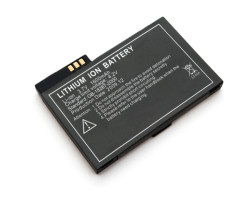Top Class Actions’s website and social media posts use affiliate links. If you make a purchase using such links, we may receive a commission, but it will not result in any additional charges to you. Please review our Affiliate Link Disclosure for more information.

Defendants NEC, Toshiba, Panasonic and Hitachi Maxell submitted proposed settlements for preliminary court approval last Friday. The settlements would resolve allegations brought by direct purchasers of lithium-ion batteries that the four defendants colluded among themselves and with others to artificially control the market for those batteries.
This settlement is part of a larger antitrust multidistrict litigation that has already secured tens of millions of dollars in settlements from other corporate defendants. Plaintiffs in the litigation are indirect purchasers of lithium-ion batteries, as well as direct purchasers such as former electronics retailer Circuit City.
These purchasers initiated this antitrust action as far back as 2012, accusing the defendants of fixing prices and limiting supply of the rechargeable lithium-ion batteries used in laptop computers, cordless power tools, and many other consumer electronics.
The alleged anti-competitive behavior took place between 2000 and 2011. The defendant companies allegedly shared sensitive, competitive information, allowing them to cooperate in a way that artificially increased the market price for lithium-ion batteries.
Because of that alleged price-fixing scheme, the purchasers say, they ended up paying more for lithium-ion batteries than they should have.
In 2013, several related claims were consolidated into this lithium-ion batteries multidistrict litigation in a federal court in California. To date, plaintiffs have secured around $69 million in settlement agreements through this lithium-ion battery multidistrict litigation.
Defendant Sony resolved the direct purchasers’ claims with a $19.5 million lithium ion battery settlement last July, the first settlement to arise out of this litigation. The settlement would provide payments to direct purchasers who bought Sony lithium-ion batteries between January 2000 and May 2011.
U.S. District Judge Yvonne Gonzalez Rogers granted final approval of the Sony settlement last Monday. Sony is not completely off the hook yet, however. Terms of the settlement require Sony to cooperate with the rest of this lithium-ion antitrust litigation. Administration of the Sony settlement has been on hold while the litigation continued.
Defendant LG Chem settled in December 2016, offering a total of $39 million to resolve the indirect purchasers’ allegations. This settlement would provide payments to persons who bought products packaged with cylindrical lithium-ion batteries – products like laptops, cameras, power tools, or any separately-sold replacement battery for such a product.
Indirect purchasers recently secured settlements with Hitachi Maxell for $3.45 million and with NEC for $2.5 million.
Counsel for the direct purchasers includes attorneys from Barrack Rodos & Bacine, Berman DeValerio, Zelle LLP, Pearson Simon & Warshaw LLP, Grant & Eisenhofer PA, Polsinelli PC, and Saveri & Saveri.
The indirect purchasers are represented by attorneys Steve W. Berman, Jeff D. Friedman and Shana E. Scarlett of Hagens Berman Sobol Shapiro LLP, and Joseph W. Cotchett, Nancy L. Fineman, Demetrius X. Lambrinos, Joyce Chang and Steven N. Williams of Cotchett Pitre & McCarthy LLP.
The Lithium-Ion Batteries Antitrust Multidistrict Litigation is In re: Lithium-Ion Batteries Antitrust Litigation, Case No. 4:13-md-02420, in the U.S. District Court for the Northern District of California.
ATTORNEY ADVERTISING
Top Class Actions is a Proud Member of the American Bar Association
LEGAL INFORMATION IS NOT LEGAL ADVICE
Top Class Actions Legal Statement
©2008 – 2024 Top Class Actions® LLC
Various Trademarks held by their respective owners
This website is not intended for viewing or usage by European Union citizens.















35 thoughts onLithium-Ion Batteries Manufacturers Agree to $50M in Settlements
90,000 people didn’t get paid. Sipree/DigitalPay claimed they were “undeliverable.” I filed objections and now they admit that “undeliverable” means things like the domain name was too new, the mail server was unidentifiable, or sending the payment could have caused harm to them– whatever that means. It’s millions of dollars they stole. They didn’t give any notice.
If you want to tell the court you didn’t get paid, you need to write to
never recieved any checks and were in 2022
I never received a check
Any updates on this
any updates on checks yet
Would like to know when checks will be mailed
I have not received my check. Please let me know when and how I will receive it.
Thank You
I would like to know when settlement payments will be paid out as have been waiting a long, long time.
When are checks coming
Who do I contact about an address change?
Would like a update please on this lawsuit